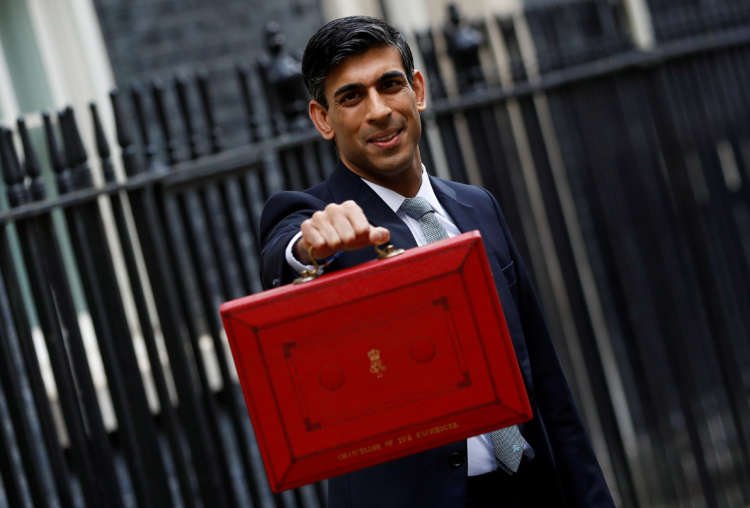Sunak to promise ‘whatever it takes’ in new COVID budget plan
Published by linker 5
Posted on March 3, 2021
4 min readLast updated: January 21, 2026

Published by linker 5
Posted on March 3, 2021
4 min readLast updated: January 21, 2026

By William Schomberg
LONDON (Reuters) – Finance minister Rishi Sunak will promise on Wednesday to do “whatever it takes”, including a five-month extension of Britain’s huge jobs rescue plan, to steer the economy through what he hopes will be the final months of COVID restrictions.
Sunak has already racked up Britain’s highest borrowing since World War Two and will turn to the bond markets again in his budget speech, saying the task of fixing the public finances will only begin once a recovery is in sight.
“We’re using the full measure of our fiscal firepower to protect the jobs and livelihoods of the British people,” Sunak will say, according to excerpts of his speech which is due to begin around 1230 GMT.
“First, we will continue doing whatever it takes to support the British people and businesses through this moment of crisis,” he will tell parliament.
“Second, once we are on the way to recovery, we will need to begin fixing the public finances – and I want to be honest today about our plans to do that. And, third, in today’s budget we begin the work of building our future economy.”
Britain has suffered the biggest COVID-19 death toll in Europe and the heaviest economic shock among big rich countries, according to headline measures of official data. It shrank by 10% last year, its worst slump in three centuries.
Sunak has so far spent almost 300 billion pounds ($419 billion) on emergency support measures and tax cuts.
Many companies are also under strain from Brexit after Britain left the European Union’s single market on Jan. 1 and the government faces the challenge of huge investment to meet its promise to create a net zero carbon economy by 2050.
But the prospect of a bounce-back from the pandemic has grown thanks to Europe’s fastest COVID-19 vaccination programme.
Sunak’s immediate priority will be to spend more money as Prime Minister Boris Johnson lifts lockdown measures only gradually, starting with next week’s reopening of schools in England, before most restrictions are removed by late June.
Sunak will announce that he is extending his centrepiece furlough programme – which currently covers about one in five private-sector employees – by five months until the end of September and expand support for the self-employed.
Employers will have to start contributing to the cost as the economy reopens, paying 10% of the hours their staff do not work in July, rising to 20% in August and September.
The scheme had been due to expire at the end of April, raising fears of a sharp jump in unemployment.
But Sunak has repeatedly said he will be “honest” about the cost of the unprecedented support and has pointed to borrowing costs rising from record lows recently, sparked by the prospects of a global economic recovery and U.S. President Joe Biden’s nearly $2 trillion stimulus plan.
A Reuters poll of dealers showed Britain was expected to sell nearly 250 billion pounds ($347 billion) of government bonds in the coming 2021/22 financial year – the second-highest total on record.
In the same poll, Britain’s budget watchdog is expected to forecast borrowing of 180 billion pounds for the coming year, down from the 394 billion pounds it predicted would be racked up for 2020/21.
Sunak is expected to announce an increase in Britain’s corporation tax rate, which is lower than in many other countries, as a first signal of his plans to address the hole in the budget.
The Sunday Times said he might freeze the thresholds at which people start to pay income tax and the higher rate of income tax as a way to raise more revenue without breaking a 2019 election promise not to raise the rates themselves.
(Writing by William Schomberg; editing by Jonathan Oatis)
Explore more articles in the Top Stories category











